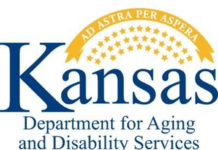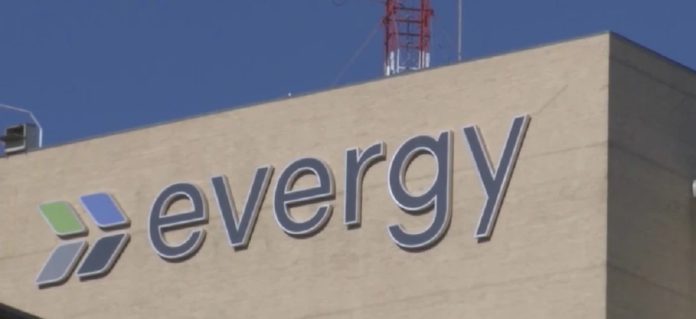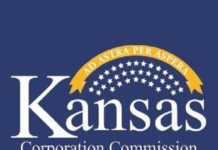A general agreement has been reached in Evergy’s latest request for a rate increase that is a little more than two-thirds of what the utility had originally sought.
The parties in the case, including Evergy, have settled on a $128 million rate increase, about $68 million less than the $196.4 million the utility requested earlier this year.
The amount Evergy requested would have been a net increase of 8.64% in total retail revenues.
The $128 million proposed settlement, which must be approved by the Kansas Corporation Commission, would mean a 9.59% overall increase for homeowners, an 8.41% increase for most businesses and a 9.23% increase for schools and churches.
Under the agreement, a residential customer bill would increase about 6.97%, or $9 per month, the company said.
A hearing on the settlement proposal before the KCC is set for July 21.
“Evergy and parties to our rate case reached a constructive agreement that allows recovery of investments made to provide reliable service to our Evergy Kansas Central customers,” said Evergy spokesperson Gina Penzig.
“Since our formation in 2018, Evergy has held rate increases well below the rate of inflation and to levels lower than average increases regionally,” she said.
“We continue to make our costs more competitive while investing in infrastructure needed to ensure reliable service and support growth in our communities.”
Financial analysts at Bank of America Securities said the agreement is “relatively favorable” to Evergy because the utility will get 65% of what it requested.
“Overall, this highlights that Kansas, a previously contentious regulatory environment, is getting better,” they wrote in a report issued Wednesday.
The analysts warned of potential headwinds facing the company, including potential weather losses in the second quarter.
“However, we believe that these headwinds can be minimized for the year through the positive rate case outcome,” the wrote.
One frequent critic of Evergy called the latest increase – coupled with others in recent years – “rate shock.”
The agreement comes a little more than a week after the KCC agreed to allow Evergy to recover the cost of building two new natural gas plants totaling about $3.2 billion from ratepayers.
The gas plants will mean an 8.6% rate increase for the 738,000 customers served in Evergy’s central area, which includes Topeka, Manhattan, Wichita and other communities Evergy serves in the eastern third of Kansas.
The rate increase for the gas plants in Sumner and Reno counties, however, will not start until they open in 2029 and 2030.
And in November 2023, regulators approved a $74 million rate increase for central Kansas that the company said meant a 4% increase for residential customers. At the same time, the company cut rates by about $33 million in the Kansas City area.
The company sought the latest general rate increase to help cover the cost of spending to improve service reliability and serve new development seeking to locate in Kansas.
The company stressed in its filings that the rate increase was not related to investments for the newly opened Panasonic plant in De Soto, Kansas.
Since Evergy’s last rate case in 2023, the company said it has invested nearly $1 billion in infrastructure that serves customers in its central service area.
The investments included technology upgrades and grid improvements to replace aging equipment and create a more resilient power grid that is more reliable and efficient for customers, the company said.

The company said grid investments were focused on outage prevention and response, including automation and sensor technology used to better identify outages and isolate outages to fewer customers.
In 2024, Evergy said it completed the installation of an advanced distribution management system, a new software platform that will allow Evergy to optimize its distribution network and increase automation of outage restoration.
“I want to stress that the investments we seek recovery for in this case are historical investments we made to ensure reliable service for our existing customers and do not relate to any potential new large load customers that might locate on our system in the future,” Evergy President and CEO David Campbell said earlier this year.
The $128 million proposed settlement is higher than the $120.7 million recommend by the KCC staff and the $115 million recommended by the Citizens Utility Ratepayer Board.

Industrial consumers originally proposed $134 million before agreeing to the staff proposal of $120.7 million.
Jim Zakoura, president of Kansas Industrial Consumers Group, called the latest proposal coupled with others in recent years “rate shock,” something he said the state has not seen since the Wolf Creek nuclear power plant began operating in 1985.
“While we worked hard, along with others in the case, to reduce the amount of Evergy’s rate increase – because Kansas law permits increases to be based on spending levels by electric utilities – a rate increase on retail ratepayers could not be prevented,” he said.
“The extraordinarily high spending levels of Evergy, and the extraordinarily high spending levels directed by the Southwest Power Pool, will continue to require even higher retail electric rates for (Evergy) retail ratepayers in the future,” he said in a statement.
“These skyrocketing increases in (Evergy Central) retail electric rates are creating hardship on thousands of Kansans, and make Kansas businesses less competitive,” he said.

The agreement does include language that would call for returning nuclear production tax credits for the Wolf Creek nuclear plant to ratepayers as ”soon as reasonably practicable.”
The credits, worth at least $65 million in each of 2024 and 2025, would be returned to ratepayers after Evergy receives a cash tax benefit for the credits by either using them to offset its tax liability or selling them to a third party.
The tax credits are intended to prevent the premature closure of the nuclear plants by offering financial incentives for electricity production.
The Treasury Department would have to determine that Evergy has the right to those credits before they could be returned to ratepayers.
Joseph Astrab, consumer counsel for the Citizens’ Utility Ratepayer Board, said the agreement was reached through “a significant review of the evidentiary record and consideration of the changing energy landscape in Kansas.
“CURB believes that the agreement reasonably balances the need to recover prudent investments for system reliability with growing affordability concerns for ratepayers,” Astrab said in an email.
















